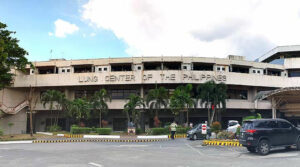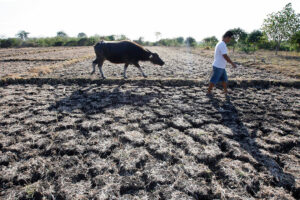The implications of rejecting ICC jurisdiction

On March 17, the Pre-Trial Chamber II of the International Criminal Court (ICC) issued warrants of arrest for two individuals: Vladimir Putin, president of the Russian Federation, and Maria Alekseyevna Lvova-Belova, Commissioner for Children’s Rights in the Office of the President of the Russian Federation. The Pre-Trial Chamber II considered, based on the Prosecution’s applications of Feb. 22, that there are reasonable grounds to believe that each suspect bears responsibility for the war crime of unlawful deportation of children and that of unlawful transfer of children from occupied areas of Ukraine to the Russian Federation, in prejudice of Ukrainian children.
Kremlin Spokesman Dmitry Peskov said Russia did not recognize the jurisdiction of the ICC, and accordingly, any decisions are null and void for the Russian Federation from the point of view of law. The ICC has jurisdiction over the alleged crimes of Putin because they were committed in Ukraine, which accepted ICC jurisdiction in 2013.
The warrant of arrest against Russia’s president shows that the ICC is functioning and is serious in punishing officials guilty of crimes against humanity, including heads of powerful states over which the ICC has no jurisdiction.
On Jan. 26, the Pre-Trial Chamber of the ICC issued its decision authorizing the Prosecutor to resume the investigation into the alleged crimes committed in the Philippines from November 2011 to June 2016, when large numbers of extrajudicial killings occurred in Davao City, and from June 30, 2016 to March 19, 2019 during President Rodrigo Duterte’s administration.
The Chamber said that after examining submitted materials from the Philippine government, the Prosecutor, and the drug war victims, the collections of information “do not amount to tangible, concrete and progressive investigative steps in a way that would sufficiently mirror the Court’s investigation.” Throughout its 42-page decision, the ICC refuted the government’s arguments and, in some places, pointed out what amounts to Manila’s nominal approach to supposedly investigative the killings.
On the same day, Justice Secretary Jesus Crispin Remulla called the ICC decision an “irritant,” insisting that the Philippines has a functional justice system. He vowed to prevent the ICC from imposing itself upon the Philippines.
On Feb. 18, President Ferdinand Marcos, Jr., after attending the homecoming of the alumni of the Philippine Military Academy, told reporters that the ICC probe is a threat to the country’s sovereignty as the ICC does not have jurisdiction over the Philippines and that any judgment coming from the ICC regarding the bloody drug war would not be legitimate.
On March 1, Secretary Remulla, in a speech before the United Nations Human Rights Council’s 52nd session in Geneva, said, “We draw the line as any sovereign state must, when an international institution overreaches and departs from the boundaries of its creation. Unjustified external interference has very rarely, if at all, served the cause of human rights.”
On March 13, state lawyers led by Solicitor General Menardo Guevarra asked the ICC Appeal Chamber to suspend the probe of President Duterte’s anti-illegal drug campaign, saying it does not have jurisdiction over it. “The ICC prosecution’s activities in furtherance of the investigations would lack any legal foundation and encroach on the sovereignty of the Republic of the Philippines,” they said in a 51-page plea.
The resolute stand taken by President Marcos, Solicitor General Guevarra, and Justice Secretary Remulla appears undermined by resolutions filed in both chambers of Congress. Former president and now Deputy Speaker Gloria Macapagal Arroyo led 19 other congresspersons in filing in the House of Representatives a resolution in “unequivocal” defense of former president Rodrigo Duterte against investigation and/or prosecution of the ICC. Senator Robinhood Padilla filed exactly the same resolution in the Senate.
Not only have the authors of the resolutions virtually recognized the jurisdiction of the ICC over the Philippines, they have also pre-empted the ICC Prosecutor in identifying Mr. Duterte as the accused and defendant in the crime against humanity. The ICC Prosecutor is still in the process of gathering facts. He has not accused anybody yet, he has not even identified anybody as a person of interest. In a way, prominent members of Congress have helped him identify at least one person of interest.
Also, that stand of the two top legal officials of the Marcos Jr. administration that says the ICC has no jurisdiction in the Philippines constrains somewhat Philippine officialdom from invoking against China the decision of the Arbitral Tribunal constituted under the 1982 Law of the Sea Convention rejecting China’s expansive South China Sea maritime claims as having no basis in international law. China does not recognize the Arbitral Tribunal as it was not a signatory to the 1982 Law of the Sea Convention.
Going back to the ICC investigation of the extra-judicial killings, although the Philippines is no longer a member of the ICC, under the Rome Statute the court retains its jurisdiction over crimes committed here prior to the country’s withdrawal from the ICC on March 17, 2019.
The Rome Statute is the treaty that established the ICC. It was adopted at a diplomatic conference in Rome in July 1998 and came into force in July 2002. The Philippines signed the Rome Statute on Dec. 28, 2000 through Charge d’ Affairs Enrique A. Manalo of the Philippine Mission to the United Nations but ratified its provisions only on Aug. 30, 2011.
Four signatory states — the United States, Russia, Israel, and Sudan — signed the Rome Statute in 2000 but never ratified the agreement to become members. China and India never signed the treaty. Ukraine, a non-ratifying signatory, has however accepted the ICC’s jurisdiction for a period starting in 2013.
As of November 2019, 123 states are party to the Rome Statute, including all the countries of South America, nearly all of Europe, most of Oceania, and roughly half of Africa.
If officials of the Philippine government maintain their stand that the ICC has no jurisdiction over the Philippines and refuse to cooperate with the ICC Prosecutor in the investigation of the extrajudicial killings from November 2011 to March 17, 2019, the ICC Prosecutor would be forced to prosecute the case solely on the basis of the testimonies of witnesses and of the relatives of the victims taken abroad, and on documentary evidence brought and authenticated also abroad. The ICC would base its judgment on the Prosecutor’ submission of his case. Philippine officialdom would be estopped from filing a memorandum of reconsideration in the event the ICC finds former Philippine officials guilty of crimes against humanity.
Members of the subcommittee on Human Rights of the European Parliament who were here last month expressed support for the ICC’s investigation of the anti-illegal drug campaign of the previous administration. Hannah Neumann, vice-chairperson of the subcommittee, said, “We, as the European Union, are members of the Rome Statute. We support the ICC and its investigation of the killings.”
If the ICC rules that the present administration is not genuinely willing to carry out the investigation transparently and thoroughly, the Marcos Jr. administration would fall out of the good graces of the European Union. The Generalized System of Preferences Plus or GSP+, which allows the duty-free entry of more than 6,000 Philippine products to Europe, will expire this year. Its renewal might be tied to the administration’s stand on the ICC investigation.
All the efforts of President Ferdinand Marcos, Jr. to win the goodwill of the Western World and attract foreign investment would all be for naught.
Oscar P. Lagman, Jr. is a retired corporate executive, business consultant, and management professor.




